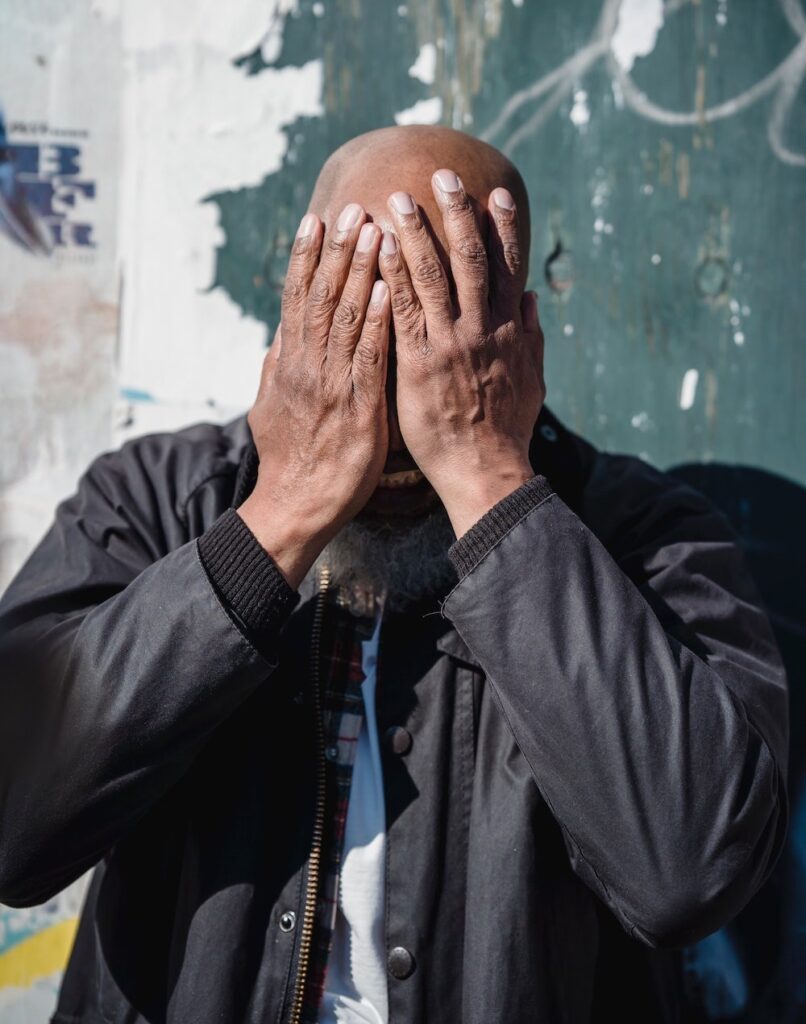Therapy for Depression
'Cause while it's over me it's too dark to see tomorrow.”
- “The World Is Yours”, Nas
Do you feel like there’s a dark cloud hanging over your head? Do you have low energy, or feel sad, helpless, or hopeless? Are you just going through the motions of everyday life? Are you toiling away without any contentment? Is there joy in your life? Many people feel unsatisfied when it comes to everyday life, work, or their relationships. When you are just surviving without thriving, it could be a sign that you are living with depression. Just like medical care for your physical health, you can see a therapist for your mental health. Don’t wait until things become unmanageable. Prevention is the best medicine, even when it comes to your emotional wellbeing.
You are not alone. I’m here for you.

How Do I Know If I’m Depressed?
Whether you have clinical depression or just feeling down, depression impacts every part of your daily life. It can interfere with your job, relationships, and physical health.
Some common signs of depression include, but are not limited to:
- Prolonged periods of sadness
- Changes in sleeping patterns (sleeping more or insomnia)
- Unable or unmotivated to get out of bed in the morning
- Lack of concentration and attention
- Isolation or feeling alienated
- Restlessness
- Changes in appetite (recent weight gain or weight loss)
- Eating comfort foods / emotional eating
- Suicidal thoughts and ideations (including passive wishes to die)
- Indecisiveness / unable to make decisions
- Feelings of worthlessness
- Not enjoying the activities you previously enjoyed
- Being uncooperative / short tempered / agitated
- Mental and emotional burnout
- Physical symptoms including headaches, fatigue, and dizziness
If you believe that you are suffering from feelings of depression, this survey can help you better assess the severity of what you are experiencing. Please be aware that this tool is not necessarily intended for self-diagnosis, a substitute for treatment, or a determining factor whether one should enter into therapy or not. This can be used as a supplemental tool to discuss with a professional health care provider when seeking support and assistance.
Not everyone experiences all of these symptoms, or you may notice other changes not even listed above. When depression is left untreated, it worsens over time. You begin to believe the negative thoughts about yourself and it becomes harder to believe you can get out of it or that you are even worthy of feeling good about yourself.

If you believe that you are suffering from feelings of depression, this survey can help you better assess the severity of what you are experiencing. Please be aware that this tool is not necessarily intended for self-diagnosis, a substitute for treatment, or a determining factor whether one should enter into therapy or not. This can be used as a supplemental tool to discuss with a professional health care provider when seeking support and assistance.
Not everyone experiences all of these symptoms, or you may notice other changes not even listed above. When depression is left untreated, it worsens over time. You begin to believe the negative thoughts about yourself and it becomes harder to believe you can get out of it or that you are even worthy of feeling good about yourself.

Internalized Anger as a Mask for Depression
- Big K.R.I.T.
Do you feel angry all the time? Are you always mad at yourself? Anger is often a mask for depression. When you can’t get out of your situation or change how you feel, that internalized anger can turn into self-hatred. Staying angry at yourself or others can prolong and worsen your depression. You may end up feeling hopeless, sorry for yourself, and more powerless over time. The more depressed you feel, the angrier you become toward yourself and the world around you, creating a vicious cycle that perpetuates itself.
Depression can occur for no reason at all, but sometimes it is triggered by life events such as:

- Divorce or breakup
- Empty nest
- Retirement
- Not meeting expectations you’ve placed on yourself
- Accomplishing something and not sure what to do next
- Racism
- Disability, injury, illness, or medical condition
- Being a caregiver
- Miscarriage
- Becoming a parent / postpartum
- Death of a loved one
- Childhood trauma (latent/delayed depression)

Low-Self Esteem
Do you feel worthless? Like you don’t have anything to contribute to society? Or constantly disappointed in yourself? You can’t ever quiet the inner critic. Low self-esteem is a common sign of depression. You’ve lost confidence in yourself and your abilities and lost your sense of self.
Low self-esteem can stem from past experiences where you didn’t feel valued, weren’t praised enough, or were neglected or verbally/emotionally abused. It can lead to verbally/emotionally abusing your children or others, which leads to feeling guilty and worsening your depression.
When people have low self-esteem, the way you see yourself often isn’t based in reality. Do other people praise you or give you compliments, but you find it hard to believe? Therapy can help you realize the good within yourself and help change the narrative in your head. You deserve to treat yourself with the same compassion and love you give to others freely. You are someone. You have worth. You can learn to love yourself.

Grief vs. Depression
When we lose a loved one, a friend, family member, baby/child, or pet, we experience grief. It is a natural response to a specific event. Grief can also be the result of the loss of a job, lifestyle, or physical/cognitive ability caused by an injury or illness. We might also experience grief when a close friend, family member, or partner has suffered a loss.
While grief and depression have some overlapping symptoms, such as deep sadness, changes in sleep, loss of appetite, or weight gain, depression can be caused for seemingly no reason at all and lead to feelings of worthlessness and hopelessness. Grief helps us heal when we experience loss, whereas depression is a mental illness that worsens over time when left untreated.

I Can Help You Overcome Depression
I take a strength-based approach to helping you overcome your depression. Together we’ll look at what you currently enjoy and feel fulfilled doing. What parts of yourself do you like and feel confident about? We will build on the positives to change that negative self-talk into self-love, self-affirmation, and self-confidence.
- Sizzla Kalonji
In our work together, I look at you as a whole person, not just your depression as an isolated condition. I take a holistic approach to your wellbeing in order to address your emotional and mental health concerns. When was the last time you saw a doctor for a checkup? Have you noticed changes in your sleep, diet, or physical/sexual intimacy? Together we’ll take a look at what your current life habits look like now and create a roadmap to where you want to go. This may include creating new routines, changing your lifestyle, or seeing other professionals, such as medical doctors, physical therapists, or dietitians/nutritionists. Holistic care and a variety of treatments can help address the many facets of depression, helping you find hope and happiness even during trying times.
